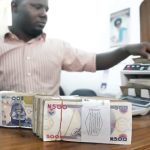Indications have emerged that the Nigeria Deposit Insurance Corporation (NDIC) and the Securities and Exchange Commission (SEC) are not on the same page as regards the trending digital currency, Bitcoin.
While the Managing Director of the NDIC Alhaji Umaru Ibrahim, recently disclosed that the commission and the Central Bank of Nigeria (CBN) have set up a committee to look into the possibility of legalising the use of the digital currency for transactions, SEC over the weekend issued a warning to Nigerians to disregard any agency or individual promoting crypto currencies investment in the country.
It should be remembered that popular Ponzi scheme, Mavrodi Mundial Movement (MMM) Nigeria, while announcing its resumption on Friday introduced a new initiative of crypto currencies investment, using Bitcoin.
The Bitcoin is an international electronic currency. This is a new form of money created on the basis of the program code which is globally gaining acceptance in the financial world.
According to SEC, “The public is hereby advised to exercise extreme caution with regard to digital (crypto currencies) as a vehicle of investments.”SEC said in a statement that the warning is in consonance with similar warnings issued by capital market regulators and Central Banks across the world over the past few years.
“The commission, wishes to alert the public that none of the persons, companies or entities promoting crypto currencies has been recognized or authorized by it or by other regulatory agencies in Nigeria to receive deposits from the public or to provide any investment or other financial services in or from Nigeria.
The public should also be aware that any investment opportunities promoted by these persons, companies or entities are likely to be of a risky nature with a high risk of loss of money, whilst others may be outright fraudulent pyramid schemes.”
Conversely, while addressing Newsmen on the use of bitcoins for digital transactions in December 2016 at a Workshop for Financial Correspondents in Kaduna,the NDIC boss said: “On our part, we have constituted a committee together with the central bank to have an in depth study of this phenomenal Bitcoin.
“We will look at its advantages and disadvantages, what it means for the payment system and what it means for the safety and security of customers.
“We will also look at what it means for money laundering, anti-corruption, crime and measurement of money/near money instruments for the economy.
“But we need a lot of education to do this and I’m calling on you (the media) to educate yourselves about all of this so you can educate the public.”
Ibrahim said with the Bitcoin, block-chain technology-based products has been include in the market.
Unlike traditional currencies such as dollars, naira, the euro, etc., Bitcoins are issued and managed without any central authority whatsoever: there is no government, company, or bank in charge of Bitcoin.
As such, it is more resistant to wild inflation, devaluation, import policies, currency fixing and corrupt banks. It is a true floating currency whose value is determined by demand and supply.
Information obtained from Bitcoin.org, stated that Bitcoin uses peer-to-peer technology to operate with no central authority or banks; managing transactions and the issuing of Bitcoins is carried out collectively by the network. The website says Bitcoin is an open-source, its design is public, nobody owns or controls Bitcoin and everyone can take part.
WATCH TOP VIDEOS FROM NIGERIAN TRIBUNE TV
- Relationship Hangout: Public vs Private Proposals – Which Truly Wins in Love?
- “No” Is a Complete Sentence: Why You Should Stop Feeling Guilty
- Relationship Hangout: Friendship Talk 2025 – How to Be a Good Friend & Big Questions on Friendship
- Police Overpower Armed Robbers in Ibadan After Fierce Struggle






